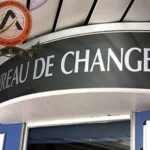I have had the opportunity to observe umrah (lesser Hajj) in the past, but this is the first time I will be taking part in the annual spiritual exercise. You can imagine my enthusiasm prior to the journey. Then suddenly the issue of mahram (male guardian for female travelers) came up, which even threatened bilateral relations between Nigeria and Saudi Arabia.
For the pilgrims from Adamawa State, it was a mixed feeling. The feelings were more apparent among them. While many were celebrating, others were lamenting, particularly those who ended up with fractured legs.
My experience was a mixed one: what with the stories of deportation, missing money; ill health and so on. In the end I was happy that no life was lost from our Adamawa State contingent during and after the pilgrimage.
The lowly part of the hajj was when a pilgrim from the state was deported home after developing what doctors said was mental illness. We were very sad for him and prayed he will have another opportunity to observe the religious obligation at a later time.
And the high point was when some first-timers cried when they sighted the Ka’aba for the first time. The Ka’aba is popularly called “Dakin Allah” in Hausa language.
“The first time I saw the Ka’aba I cried because of joy. I prayed for myself and all Muslims,” said Muhammad Lawal Gidado, 36, from Yola South, who had waited for five years for a hajj visa.
Like Gidado, all the other pilgrims in the state including my humble self offered various supplications in the holy land. It was no doubt a memorable experience to join millions of Muslims in a demonstration of solidarity of the Muslim ummah who are all united in supplication and submission to the Almighty Allah.
I personally prayed for an opportunity to live at the Holy land for the rest of my life, because I strongly believe there is no such place as peaceful and spiritually fulfilling in the entire world.
“This is a blessed country,” another pilgrim remarked, making reference to how millions of people, irrespective of the colour of their skin and status stayed harmoniously at the sacred land.
During the hajj, every day, all the Muslims face the Ka’aba, the huge black cube at the centre of the Grand Mosque to offer five obligatory prayers.
A wonderful sight to behold is the Dawaf (a ritual of going round the Ka’aba) which never ceases, except when the obligatory prayers are offered. Indeed, a visit to the sanctuary is a powerful experience.
“Glory goes to the Almighty Allah for the huge success we recorded this year, because our pilgrims observed decorum and sense of maturity that need to be emulated,” Alhaji Bashir Aliyu, Executive Secretary, Adamawa State Pilgrims Welfare board told Weekly Trust. No wonder the Sultan of Sokoto Muhammad Sa’ad Abubakar commended Adamawa State pilgrims for exhibiting sense of maturity while in the holy land. He also assured us that the National Hajj Commission of Nigeria (NAHCON) would correct all anomalies experienced this year.
The Sultan, who was also the Nigeria’s Amirul Hajj for 2012 Hajj, while addressing Adamawa State Pilgrims during a visit to their hotel at Masfala in Makkah, said the pilgrims deserve commendation.
“Adamawa pilgrims deserve commendation. You exhibited a high sense of maturity and no case of defaulting was recorded among you,” he noted.
Sultan, flanked by Nigerian Ambassador in Saudi Arabia, Abubakar Shehu Bunu and other officials, also said some anomalies had been noted such as shortage of accommodation, feeding and lack of medical facilities especially during the stay in Muna and on Arafat Day.
During the exercise, about 2,300 pilgrims from the state converged on Mount Arafat on the 9th day of Dhul Hajj. We also performed the symbolic stoning of the devil at the Jamrah in Muna and then circumambulated the Ka’aba as part of the hajj rites.
Alhaji Aliyu told Weekly Trust that the state government would not relent in taking the necessary steps to ensure the well-being of its pilgrims.
He said in subsequent hajj operations, the board plans to provide shuttle buses to take pilgrims to Al-Masjid al-Haram (the Grand Mosque that surrounds the Ka’aba) to ease their transportation difficulties.
He denied that there was a fire outbreak in one of the hotels where the state pilgrims lodged. “Our pilgrims were hale and hearty except one that was earlier deported for insanity. There was no fire in our hotels or tents,” he said.
While in the holy land, the Adamawa State pilgrims offered special prayer for peace to reign in the state and Nigeria at large.
 Join Daily Trust WhatsApp Community For Quick Access To News and Happenings Around You.
Join Daily Trust WhatsApp Community For Quick Access To News and Happenings Around You.


